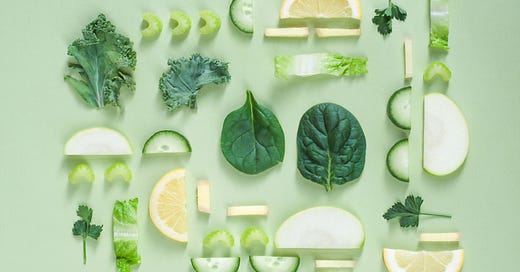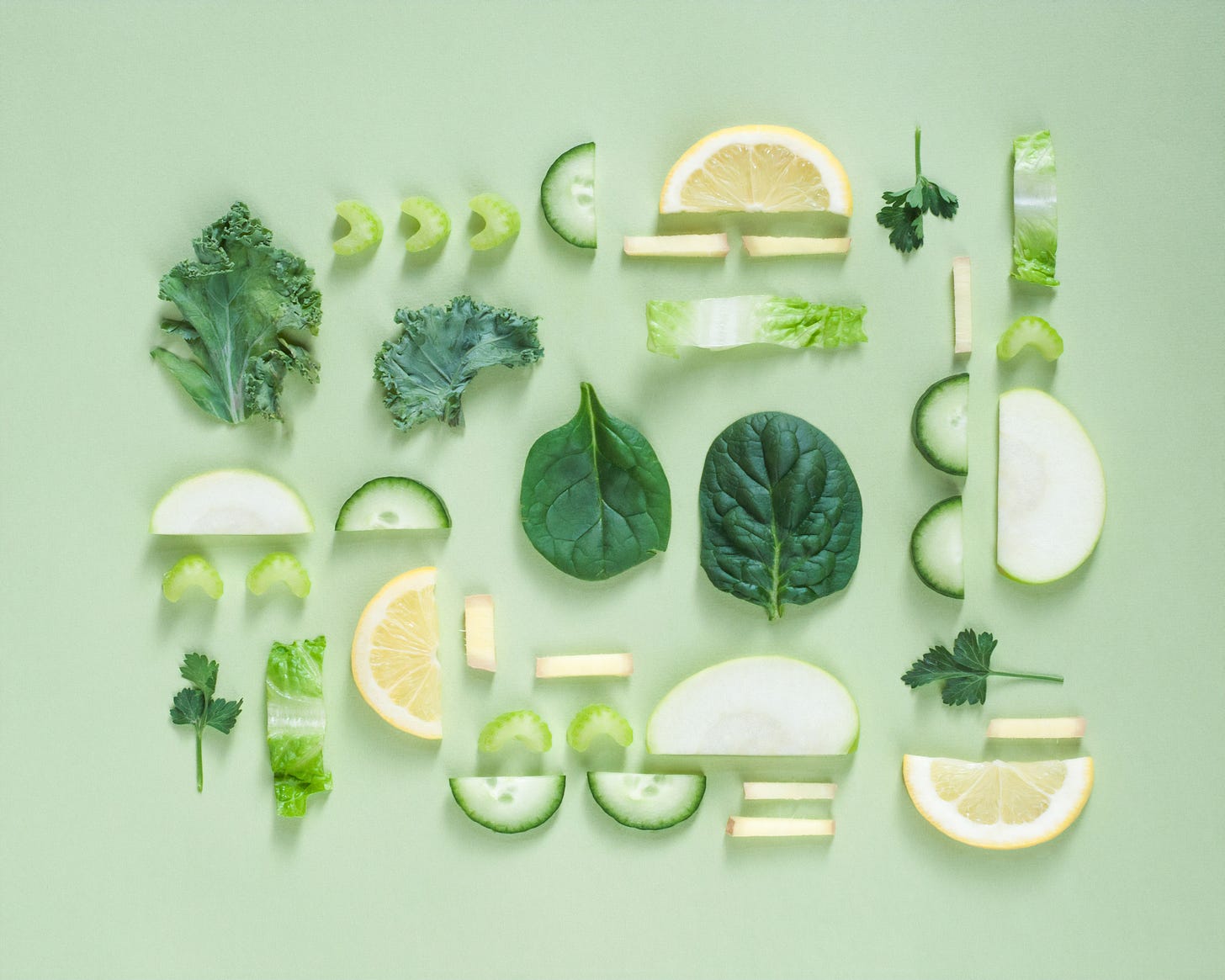"Healing", misinformation & staying safe online with chronic illness
It's difficult to resist the allure of the many ‘fixes’ circulating online. When you’re feeling scared and desperate, it definitely leaves us vulnerable to exploitation and misinformation.
When I was diagnosed with Ehlers-Danlos Syndrome at 21, I never thought to look for ways to “cure” myself. I understood that I had a structural genetic condition that was just part of who I was. It was how I was made.
Don’t get me wrong, I was hopeful that with a name would come appropriate care that would prevent decline. Sadly, at the time, that didn’t materialise in the way that I hoped.
Fast forward a few years, and my body was going through a lot. The decline I feared was happening quickly and my pain was terrible. I’d been pushing myself to breaking point, and I had a legitimately traumatic experience with medication, leaving me with what I called “episodes” that made it difficult to leave the house.
I still remember the day it happened. My mum, to get me out of the house, had plonked me in my grandma’s manual wheelchair and taken me to a shopping centre. As we sat in the café in Fenwicks, I was eating a jacket potato and, for the first time felt, like I was going to pass out.
Fast forward a bit, and my autonomic nervous system was shot. I could barely sit up in bed, and I would end up on the floor after eating a banana. I lost a huge amount of weight extremely quickly and I was scared. I was diagnosed with PoTS and started the process of trying medications to not only help with my blood pressure, but also to help me be able to eat.
I tend to not have the best reactions to a lot of different medications, so the process was difficult, and often left me feeling even worse. Over time I also developed mast cell issues, and had significant histamine reactions to most foods, the majority of household and beauty products, stress, and my own digestive process.
My life got smaller and smaller. I didn’t know what to do. And then one day I started Googling. I couldn’t eat, so I needed to figure out how to do that.
I quickly came across blogs that promised a way out. That showed young women, with the same conditions as mine, who were able to “heal themselves” using diet and get their lives back.
Whilst I knew that the new stuff was linked to EDS (they’re very common co-morbidities), they were new to me. I’d always had very, very minor PoTS symptoms (inability to regulate my body temperature, dizziness when standing up) but that was just my normal, so a few things made sense to me:
If something new has popped up and wasn’t necessarily there before, surely that means it can go away again.
A huge part of my issue at the time was caused by food - and I struggled to eat. So, in my mind, food had to play a role in helping (if it was also hurting).
I kept reading, but didn’t change anything. And then, after the worst New Year’s Eve I’d ever had, I thought I’d give this whole “healing” thing a go.
Hey, it couldn’t hurt, right?
I started obsessively figuring out what would “heal” or “harm” me, turned to social media, made friends, unintentionally grew a following, and got deeper and deeper down the rabbit hole.
There was something very empowering about feeling like there was something I could do. So much of my healthcare felt so passive. Driving across London, being prodded and poked, taking more and more pills. Here was something I could do to help myself.
There’s a whole middle bit here, that I’ll save for future issues (and I think there’s a conversation that needs to be had about time and luck, too), but it’s safe to say that I got caught up in a web of misinformation that flourishes online generally, but also especially in chronic illness spaces. This is particularly worrying because there are so many vulnerable people looking for answers, help, support, and community.
It’s bloody hard to avoid, and I not only obsessively consumed misinformation in my desire to feel better, I also unintentionally spread it.
Chronic illnesses are hard, confusing and complicated things, and the internet opens up a world of possibility for both positive and negative. Most of us are not taught how to be scientifically literate, and even the most critical thinking people can fall victim to misinformation.
That’s why I asked my brilliant friend Maxine Ali to join us today. Maxine is a health writer and PhD Candidate at the Centre for Language, Discourse and Communication at King's College London. Her research explores digital health cultures and performances of 'wellness' on social media.
Maxine was one of my first “Instagram friends” and we met for the first time offline at a raw food Cafe near South Kensington. We both went through a really similar experience of trying to “heal” ourselves through diet, and both came out the other side having thought, spoken, and (in Maxine’s case) researched this phenomenon.
Below you’ll find my interview with Maxine. We talked about her own personal experiences, the challenges of finding information online, why chronically ill people get sucked into wellness, how to stay safe online, and much more.
We first met on Instagram, way back in the wellness boom days of green juices, overflowing smoothies in mason jars, and raw food challenges. Can you tell us a little bit about why you started posting on Instagram?
I was largely drawn in by the sense of community it offered. Being young and chronically ill can be exceptionally isolating, and add to that all the dietary restrictions I’d adopted through following wellness, my social life at the time wasn’t exactly flourishing.
Instagram felt like a route to connecting and interacting with others who ‘got it,’ who were in a similar position as me.
Why did you turn to diet?
I’d internalised the widespread cultural belief that health is entirely within individual control and that through ‘lifestyle modification,’ you can manage (and even treat) any health condition.
This was then backed up by the many wellness influencers claiming to have healed themselves of everything from IBS and eczema to cancer through holistic health practices such as ‘clean eating’ and adopting a strict plant-based diet. For me, it seemed such a simple and straightforward solution; I suppose I thought ‘what’s the harm in trying?’
What was your experience like of being on Instagram during this time?
Pressure. The pressure to perform perfect ‘health.’ The pressure to post beautiful food imagery every day. The pressure to ensure that I was always abiding by wellness culture’s prescription of a ‘correct’ diet.
I was continuously conscious of the fact that other people were scrutinising what I ate, and trying to ensure I never gave them something to criticise. At the time, I might have seen this as utilising Instagram as a way to hold myself ‘accountable’ for my health, but it was incredibly toxic and time-consuming.
When did you start to recognise that this wasn't working?
It was only around 1-2 months later that my health noticeably deteriorated, however I recall a long period of denial and believing that it was me who was the problem, that I just wasn’t eating ‘healthy,’ enough, that I simply needed to be even stricter with what I was eating.
I’m not sure at what point I began to recognise that it was wellness that was the problem – it was a slow unravelling of my own beliefs about ‘health’ (realising that you can’t always be in control, and that, of course, being constantly terrified of so-called ‘unhealthy’ food isn’t conducive to wellbeing) alongside the realisation that most of the advice shared within the wellness community was total BS.
And how did you start being able to move away from wellness?
I owe a lot to the close friends I made within wellness (particularly you, Natasha!) who’d similarly began to realise it wasn’t quite the panacea it claimed to be.
Coming to terms with the fact that diet isn’t a cure-all, navigating the simultaneous feelings of relief and grief aroused by this realisation that the state of ‘perfect health’ promised by wellness was unattainable, was made so much easier by the open, honest and judgement-free conversations I was able to have with others about all of these conflicting thoughts and emotions at the time.
We both went through quite an interesting transition, around the same time a lot of other people were too. As we started moving away from wellness, we recognised the false promises and the hope that they had given us.
On reflection, I feel like in many ways, even though there were a lot of negatives, getting quite deep into wellness saved my life. I was scared, ill and alone. And it gave me something to hold onto and a community. And that speaks to a wider issue, doesn't it? Of people with long-term conditions who don't get the care and support that they need.
The medical system is simply not set up to support the long-term needs of chronically ill folks. Many of us go through an exhaustingly long process of help seeking that may, or may not, lead to a definitive diagnosis. We’re then often left with the reality that ‘this is our life now,’ without a long-term care plan put in place (for me – every flare was treated as an acute instance of illness, meaning that I was never offered any kind of sustainable support), and with no mental health support offered to help us come to terms with this reality either.
In my experience, it’s not long before you begin to be treated as a ‘burden’ and ‘inconvenience,’ and you’re encouraged to just ‘deal with it’ alone and in silence. Without adequate support, many of us quickly lose faith in medical professionals and, quite naturally, begin to look elsewhere for answers, support and hope.
Wellness culture exploits the desperation and vulnerability of people with long-term health conditions. It not only offers a sense of control and autonomy through seemingly ‘simple’ solutions to health conditions in the form of diet and holistic health practices. It legitimises health struggles, it sees them as real and worthy of attention. It acknowledges suffering and provides a space and framework in which it is acceptable to disclose our pain in a way that is rarely permissible within wider society.
We’re offered an opportunity to make sense of the often chaotic experience of chronic illness through positioning it as part of our ‘wellness journey,’ and this in itself can bring us comfort as well as enable us to re-imagine illness as having some kind of reason or purpose.
When you feel poorly, Dr. Google is often the first point of call, and even scrolling through the major hashtags on social media for different conditions, it's really hard to avoid a never-ending stream of recommendations, suggestions and "miracle cures".
How can people (and it's important to note, often vulnerable, scared, desperate people) sort through all of this?
Keep reading with a 7-day free trial
Subscribe to The Rest Room to keep reading this post and get 7 days of free access to the full post archives.





